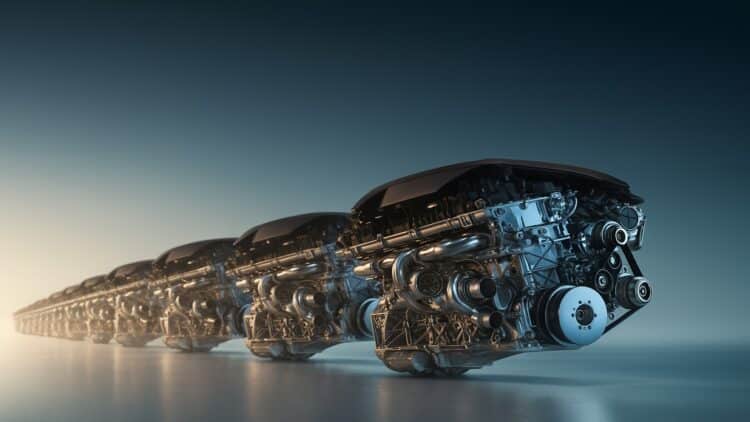There is a new day dawning for BMW, and it is hydrogen-free. The German car maker has moved decisively, stating that its future generation of engines will be 100% electric power. As the production of the first electric motors for the Neue Klasse architecture rolled onto the assembly line, BMW is giving the message that the future where battery-electric vehicles are at the lead is just around the corner, and hydrogen is in the rearview mirror.
BMW’s bet: Why the car maker is betting big on electric motors in the Neue Klasse
BMW’s Steyr plant in Austria just produced its first electric motors for the test cars of the Neue Klasse, a company milestone. It is the first all-electric production at the plant, as it has traditionally done internal combustion work. The production capacity is part of the overall push by BMW to electrify its products and break away from other alternative fuels like hydrogen.
The Neue Klasse platform is designed ground up with electric mobility in mind. The new engines, Electrichybridvehicletechnology.com explains, are more efficient, lighter, and more powerful than their predecessors. BMW leadership believes that the exclusive development of battery-electric technology will allow it to lead the performance, sustainability, and innovation markets.
How BMW’s electric-first initiative is revolutionizing its manufacturing and product engineering
The switch to electric drives is reversing the very business that BMW is based on. A completely new assembly line, highly advanced robots, and newly retrained employees now occupy the Steyr factory. With the capacity of more than 600,000 electric motors annually provided by the factory, it is expected that the engine of next-generation BMW vehicles will be driven by electricity (BimmerLife).
BMW revolutionizes car architecture, too. Its Neue Klasse platform is more flexible, more aerodynamic, and battery-integrated. That integrated solution promises more range, faster charging, and more responsive handling—those magic spices to attract customers in the electric age.
The numbers: BMW’s wager on electrification versus hydrogen and the competition
BMW’s move to put all its chips on electric motors is supported by powerful market forces. Electric motor use for cars worldwide is growing, and hydrogen technology is a niche with a thin support base. BMW’s new electric motors will propel a lineup of models ranging from compact cars to SUVs and put the group in a leadership position in each segment, according to a report by Electrichybridvehicletechnology.com.
The production capacity of the Steyr factory is a testament to BMW’s ambitions. With the capacity to churn out hundreds of thousands of electric motors annually, BMW is catching an early lead in oil-based fuel phasing out. BMW’s volume and efficiency strategy will make phasing out costs lower and quicker globally.
This is why BMW electric engines can revolutionize the future of driving
New Class e-drives don’t just provide zero emissions but unrivaled capability as well. BMW is summoning its engineering expertise to provide instant torque, silky-smooth acceleration, and nimble handling—brand trademarks all. Its enthusiasm for electric mobility also sets new standards for battery, charging infrastructure, and digital connectivity.
Industry experts believe BMW’s electric-first vehicle can be a new benchmark for premium automakers. Abandoning hydrogen and doubling down on battery-electric, BMW is betting the future of driving will be clean, connected, and exciting.
BMW does not want to drag the hydrogen into its electric revolution. The vision of BMW to be part of the world of 100 percent electric vehicles with Neue Klasse is a milestone for both BMW as well as the industry. And when the first engines roll out of the Steyr assembly lines, there is no doubt, the future is in electrical power and BMW belongs to the first line.
Disclaimer: Our coverage of events affecting companies is purely informative and descriptive. Under no circumstances does it seek to promote an opinion or create a trend, nor can it be taken as investment advice or a recommendation of any kind.


